SGGPO
On the morning of May 30, the National Assembly listened to the report explaining, accepting and revising the draft Law on Electronic Transactions (amended) and discussed this project.
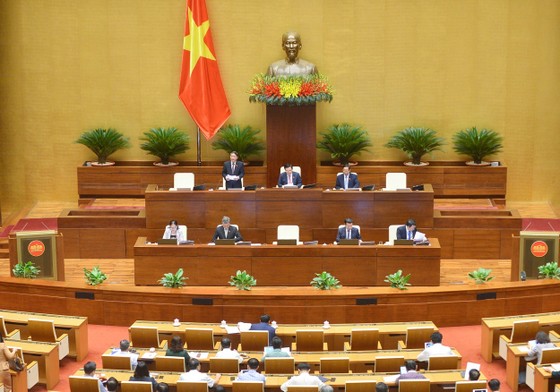 |
| Vice Chairman of the National Assembly Nguyen Duc Hai chaired the meeting. |
After being absorbed and revised, the draft revised Law on Electronic Transactions consists of 7 chapters and 54 articles. According to the agenda, the draft law will be considered and approved by the National Assembly on June 22.
According to the report on explanation, acceptance and revision of the draft law presented by Chairman of the Committee on Science , Technology and Environment Le Quang Huy at the meeting, some opinions suggested expanding the scope of application to include foreign individuals, organizations, and organizations and individuals related to electronic transactions.
However, according to the National Assembly Standing Committee, this agency has carefully assessed the subjects of application of the draft law and revised it in the direction: "This law applies to agencies, organizations and individuals directly participating in or related to electronic transactions".
Regarding electronic signatures, there are opinions suggesting to clarify the content of digital signatures and electronic signatures; at the same time, it is suggested to clarify whether OTP, SMS or biometrics are electronic signatures? Mr. Le Quang Huy said that currently, the forms of transaction authentication codes via electronic messages (SMS), one-time password confirmation (OTP), OTP Token, biometrics, electronic user identification (eKYC) ... are used relatively commonly in electronic transactions.
However, these forms are only considered electronic signatures when logically combined with a data message, capable of confirming the subject signing the data message and confirming that subject's approval of the content of the signed data message.
Regarding the proposal to add a legal basis for authentication measures such as electronic signatures, the explanatory report stated that the draft has outlined the general principles for conducting electronic transactions. Accordingly, the parties are allowed to "agree on the choice of technology, electronic means, and electronic signatures to conduct electronic transactions". In fact, at banks, customers can use transaction accounts, passwords, OTP codes, etc. provided by the bank to conduct transactions.
This is a form of confirmation of customer acceptance of the content of the data message (transaction content), however these forms are not electronic signatures.
Notably, there are suggestions to regulate the obligations of State agencies when processing personal data and sensitive data related to individuals. Mr. Le Quang Huy explained: The Law on Cyber Security has a provision on the protection of personal information, which stipulates the principles of protection, collection and use, updating, modification and cancellation, ensuring information security and the responsibility of State management agencies in protecting personal information on the network. The Law on Cyber Security also stipulates the responsibility to protect personal data of domestic and foreign enterprises providing services on telecommunications networks and the Internet.
In addition, the Government has issued Decree No. 13 on personal data protection, which stipulates the responsibilities of relevant ministries, branches, agencies and organizations in protecting personal data. Therefore, it is not necessary to further stipulate this content in the draft Law.
Source











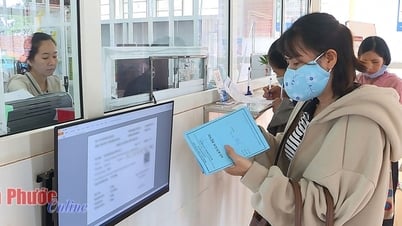
























![[Photo] The 9th Congress of the Party Committee of the Office of the President, term 2025-2030](https://vphoto.vietnam.vn/thumb/1200x675/vietnam/resource/IMAGE/2025/6/20/78e7f27e8c4b4edc8859f09572409ad3)
























![[Maritime News] Wan Hai Lines invests $150 million to buy 48,000 containers](https://vphoto.vietnam.vn/thumb/402x226/vietnam/resource/IMAGE/2025/6/20/c945a62aff624b4bb5c25e67e9bcc1cb)


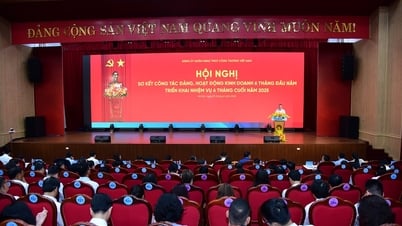






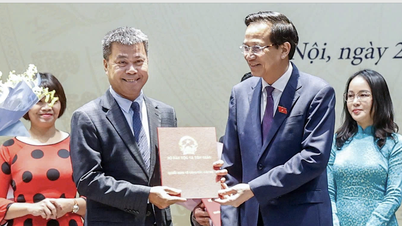
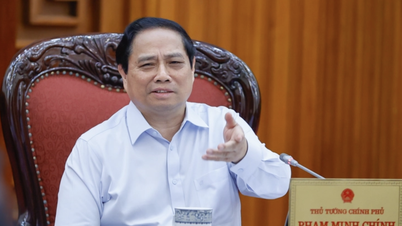













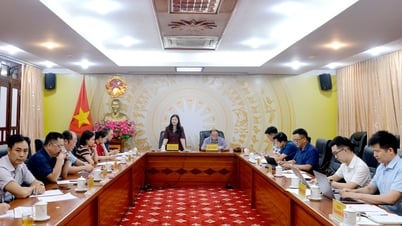
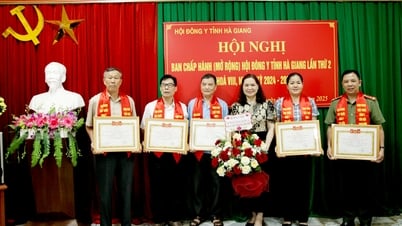
















Comment (0)